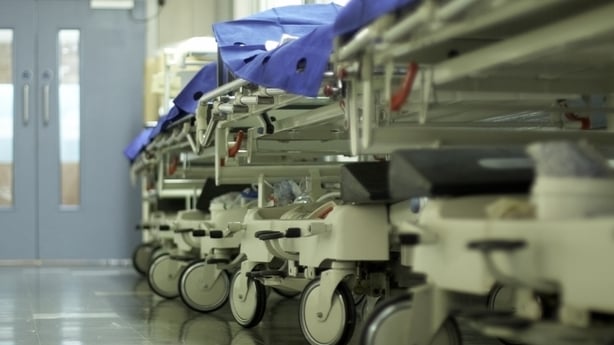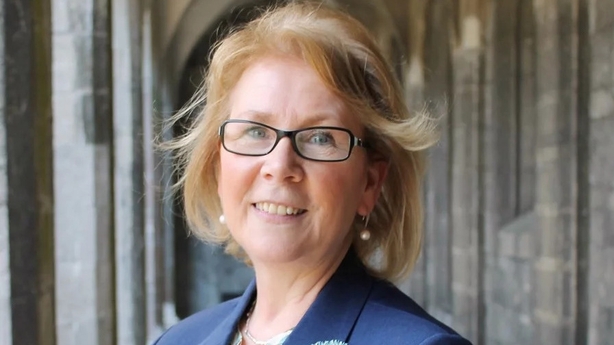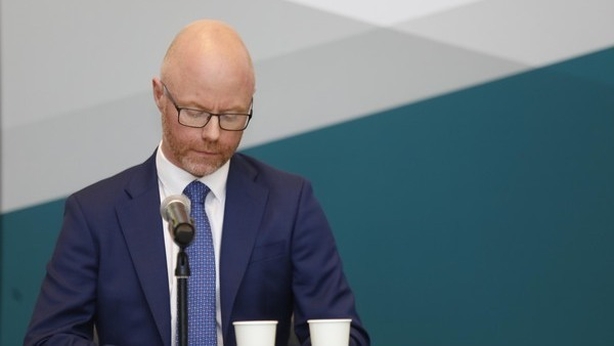Health is the second biggest spending department of the Government and next year will have a total budget of over €25 billion.
It is also a very personal and sensitive area as it affects each individual and family in some way.
In health, some familiar subjects tend to dominate each year and so it was again in 2024.
New children’s hospital
The controversy over the cost overruns and delays in completing the new National Paediatric Hospital at the St James’s Hospital campus rumbled on this year.
The hospital is said to be 94% complete.
During 2024, blame and counter-blame was traded by the National Paediatric Hospital Development Board and builders BAM.
There is still no certainty about when it will open and what it will finally cost.
It should be completed by around June next year.
The official Government approved budget is €2.24 billion, but it is expected to be much greater than that. It had an original budget of €650 million.
Not only did the construction project come under the spotlight again this year, but so too did the preparations within Children’s Hospital Ireland for the move to the new facility.
A report by consultants KPMG for the HSE raised concerns about the operational readiness to commission the new hospital once it is built.
The report also pointed to the lack of a permanent CEO, but that was resolved with the appointment of Lucy Nugent, who takes up her post with Children’s Health Ireland in January.
If the new completion date of June 2025 is met, it should open for its first patients about six months later after the commissioning is completed.
Will 2025 be the year that the hospital building is finally completed?
Overcrowding

Hospital overcrowding remained a major issue this year.
Each day there were hundreds of patients waiting for admission to a bed, after a clinical decision had been made for them to be admitted.
However, the number of patients waiting overall reduced a little so there has been some progress.
Health officials have also been keen to focus on the length of time patients are waiting to be admitted to a bed, rather than the number waiting.
A National Patient Survey by HIQA found that over 72% of patients reported they waited longer than six hours before being admitted to a bed, while over 13% waited more than 24 hours.
Overcrowding varies from hospital to hospital and a myriad of factors are at play, including demographics and population growth.

The big outlier regarding overcrowding remains to be University Hospital Limerick.
On many days, it was reporting over 100 patients waiting to be admitted.
It found that she had waited on a chair for 12 hours in the emergency department of UHL.
The review found that the emergency department was severely overcrowded, and doctors and nurses were unaware of her sepsis risk.
Her death was almost certainly avoidable, it concluded.
A review into emergency care in the midwest and whether a second emergency department is needed is due to be completed by HIQA by next summer.
Hospital waiting lists
The good news is that national hospital waiting lists are reducing and the waiting time for long waiters is improving.
However, the lists remain very high with over 822,800 patients waiting for inpatient, day case or an outpatient appointment, according to the most recent figures for November.
This includes over 572,403 patients waiting to be seen at an outpatient clinic for the first time by a consultant.
The national figures exclude over 67,000 patients who are listed as “suspended” from the lists.
This group includes patients who are temporarily unfit or unable to attend due to clinical or personal/social reasons.
It also includes patients who are being treated through various insourcing or outsourcing initiatives, using other public or private hospitals for example.
For many in 2025, the wait will go on.
Spinal surgery and scoliosis

Throughout the year, there was much debate about the length of waiting lists for spinal surgery and in particular children with scoliosis.
The Government commitment that no child would wait longer than four months came back to haunt it many times, particularly during the recent General Election.
Specialists in the area say this was an arbitrary figure by the Government, which was not clinically advised.
A special spinal surgery initiative was set up in February and headed by consultant orthopaedic surgeon David Moore, who leads the Children’s Health Ireland Spinal Surgery Management Unit.
Some patients are also getting access to treatment in the UK and the US.
Extra funding to cut spinal surgery waiting lists had a particularly positive effect this year and by the end of the year around 520 operations will have been performed, the highest number in any year.
The waiting list for November stood at 243 children.
The unit expects to see more patients than ever treated in 2025.
Covid-19 Inquiry

The long-promised Covid-19 inquiry was established, just before the General Election.
It is more of a review than a statutory inquiry and how it will operate remains a bit unclear.
It will be an evaluation of what worked and what did not work.
The review will not have statutory powers to compel witnesses or evidence.
It is being headed by Professor Anne Scott and there are expected to be some public hearings to hear about the lived experience of people.
Minister for Health

2025 will see a new Minister for Health appointed.
Stephen Donnelly was appointed minister of this portfolio in June 2020, but failed to get elected in the recent General Election.
One of his legacies is that the health service has much deeper data now on how it is performing at a macro level and where money is being spent.
This includes information like how many patients that consultants are seeing at each outpatient clinic, compared to similar clinics in other hospitals.
Health is a very challenging and complex portfolio and whoever gets the top job now will have to read into it very fast, given the pace of developments in this most sensitive of areas.
